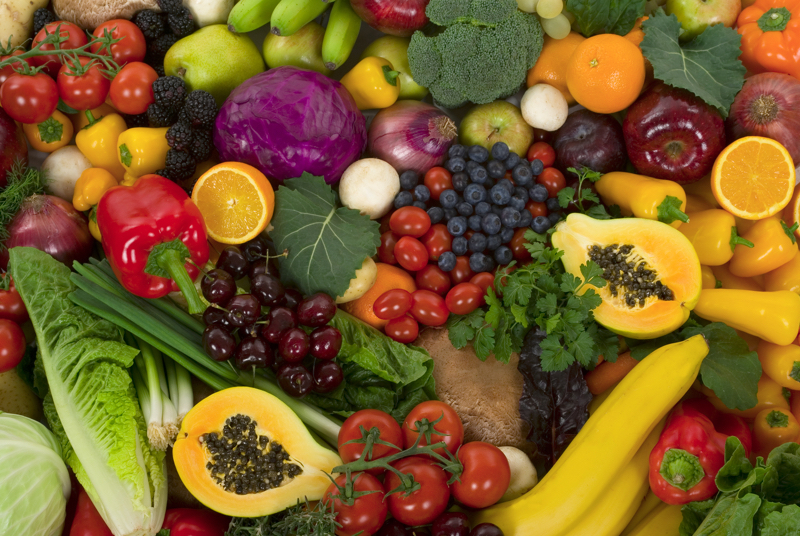A nutrient is anything that provides nourishment essential for growth and the maintenance of life. This encompasses micronutrients and macronutrients including fatty acids and amino acids.
Many nutrients are good for us, but there are a few that we need to be particularly mindful to incorporate into our diets.
1. Water
Keeping hydrated is really important. Water is absolutely essential for survival, especially as it makes up to 60 per cent of the human adult body. A few days without water can lead to serious illness and even death.
Our body relies on water. It is critical for waste removal and temperature regulation, and is an essential element of every cell.
To remain hydrated, drink water throughout the day, and eat foods with high water contents – fruits and vegetables in particular. Keep drinks, like coffee and nasty soft drinks which dehydrate you to a minimum.
2. Carbohydrates
Carbohydrates, or carbs, often get a bad rap as fattening, with many no-carb diets emerging in recent years. Like any nutrient, consuming carbs is all about balance.
In reality, carbs are essential for proper body function. Carbs are broken down into glucose, which is your brain and body’s main fuel.
Carbs also ensure your body is not breaking down proteins to gain energy, preventing loss of muscle mass.
Complex carbohydrates take longer to break down and keep you fuller for longer, meaning you cut down on unhealthy snacking.
Whole grains, vegetables, and fruits are all examples of healthy complex carbohydrates.
3. Protein-Amino acids
Protein is critical for good health. Protein is essential in forming muscles to creating new enzymes and hormones.
Proteins are comprised of small building blocks called amino acids. They are the building blocks of cells, which turn over quicker and regenerate more slowly as a person ages. Ensuring these vital building blocks are there helps enhance optimal ageing at the time of your life when it becomes more important to support your nutritional intake and make up for any deficiencies.
Animal proteins provide all essential amino acids, while plant proteins may be lacking several of these essential elements.
To ensure you’re getting all essential amino acids, include a variety of proteins in your diet, such as meat, eggs, dairy, nuts, and beans. Where you do eat meat, try to eat only lean meat.
4. Fat
Another oft-targeted nutrient, dietary fat has earned a bad reputation because of its association with body fat. A multitude of diets have sprung up condemning all fat, but the reality is much more nuanced.
Fat is an essential nutrient that boosts absorption of vitamins and helps protect organs.
Some types of fats are undoubtedly bad. Trans fats, found in processed and baked foods, increase the risk of heart disease and should be eaten very rarely, if ever.
Unsaturated fats, found in natural sources, actually protect the heart and aid the prevention of heart disease. These good fats can be found in nuts, avocados and salmon.
5. Vitamins
Vitamin A is vital for skin and eye health, Vitamin C for bone and muscle structure and immune support, and Vitamin D for bone growth and cardiovascular and nervous health.
Vitamin D is particularly critical for bone and immune health, so it’s a must have.
No food provides every essential vitamin. A diverse and healthy diet is needed. If your diet is restrictive, there’s nothing wrong with taking a supplement which contains multivitamin to fill in the gaps. That said, try and get your vitamins naturally where possible. Unfortunately though for most of us, this isn’t possible, so make sure you get them through other means.
6. Minerals
Minerals are another essential micronutrient, with each essential mineral fulfilling a different role.
Calcium is essential for bone health, muscle and nerve function, and circulation. 99 per cent of the body’s calcium is found in the bones and teeth. Calcium is found in dairy, leafy greens and fish such as sardines and salmon.
Sodium is another essential nutrient that’s gained a bad reputation. Sodium keeps nerves and muscles working correctly.
Sodium should be consumed carefully. It is all about moderation. Sodium can be found naturally in nuts, vegetables, meats and legumes, but intake should be limited to around one teaspoon of salt. Processed, frozen, and canned foods with high sodium should be avoided.
7. Omega-3 fatty acids
It’s been found that omega-3 fatty acids optimise brain health and may aid heart function. Unlike other fatty acids, your body can’t create omega-3, so it’s crucial to have sources of it in your diet.
Salmon, mackerel and sardines contain active omega-3 fatty acids, which don’t require much energy for the body to use.
Plant based sources include chia seeds, flax, and walnuts. These foods contain an inactive form of omega-3 that your body has to convert before it can use, and only in small amounts. If you’re on a restrictive diet, incorporate fish oil or algae based supplements.
In summary, while we should be putting all of these important building blocks into our body every day, unfortunately due to diet, toxins, alcohol, pollution, poor quality food, lack of rest, etc – we often don’t give our body what it needs. Over a longer period of time, this can cause problems which can then lead to illness. It is best if we avoid this and give our body what it needs. This is one of the reasons why I developed an ‘all in one’ nutritional drink to ensure I was giving my body all the things it needed to function properly and stay well.
Article courtesy of WellnessDaily

